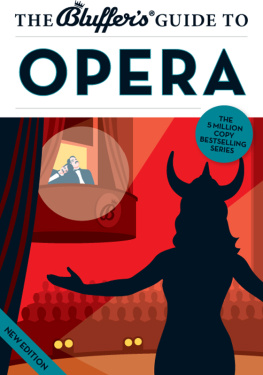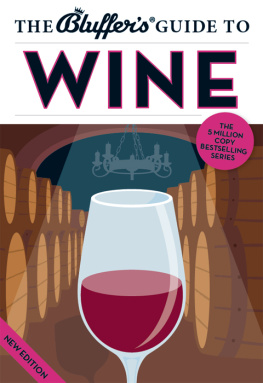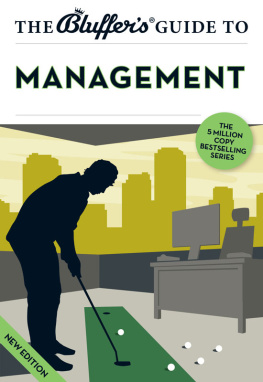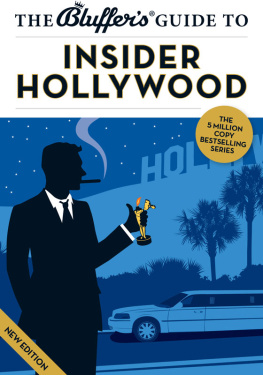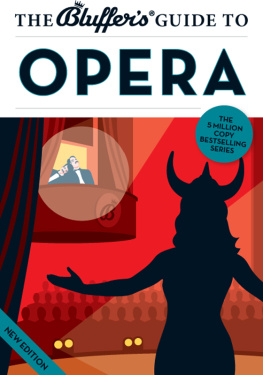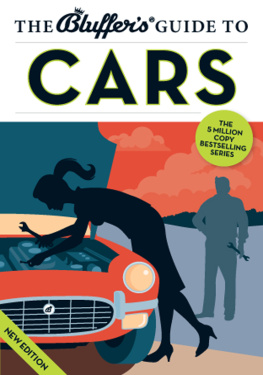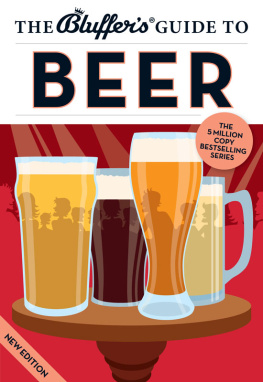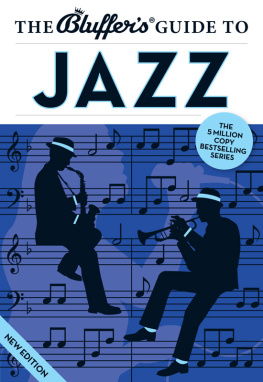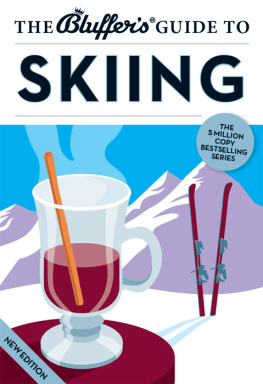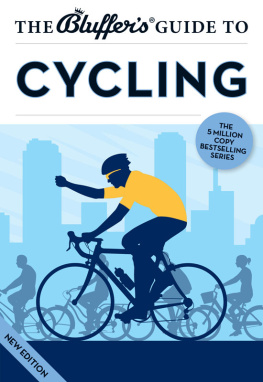Hann Keith - The Bluffers Guide to Opera
Here you can read online Hann Keith - The Bluffers Guide to Opera full text of the book (entire story) in english for free. Download pdf and epub, get meaning, cover and reviews about this ebook. year: 2014, publisher: Not Avail, genre: Detective and thriller. Description of the work, (preface) as well as reviews are available. Best literature library LitArk.com created for fans of good reading and offers a wide selection of genres:
Romance novel
Science fiction
Adventure
Detective
Science
History
Home and family
Prose
Art
Politics
Computer
Non-fiction
Religion
Business
Children
Humor
Choose a favorite category and find really read worthwhile books. Enjoy immersion in the world of imagination, feel the emotions of the characters or learn something new for yourself, make an fascinating discovery.
- Book:The Bluffers Guide to Opera
- Author:
- Publisher:Not Avail
- Genre:
- Year:2014
- Rating:4 / 5
- Favourites:Add to favourites
- Your mark:
- 80
- 1
- 2
- 3
- 4
- 5
The Bluffers Guide to Opera: summary, description and annotation
We offer to read an annotation, description, summary or preface (depends on what the author of the book "The Bluffers Guide to Opera" wrote himself). If you haven't found the necessary information about the book — write in the comments, we will try to find it.
The Bluffers Guide to Opera — read online for free the complete book (whole text) full work
Below is the text of the book, divided by pages. System saving the place of the last page read, allows you to conveniently read the book "The Bluffers Guide to Opera" online for free, without having to search again every time where you left off. Put a bookmark, and you can go to the page where you finished reading at any time.
Font size:
Interval:
Bookmark:


Hammersley House
5-8 Warwick Street
London W1B 5LX
United Kingdom
Email:
Website: bluffers.com
Twitter:
First published 1989
This edition published 2013
Copyright Bluffers 2013
Publisher: Thomas Drewry
Publishing Director: Brooke McDonald
Series Editor: David Allsop
Design and Illustration: Jim Shannon
All rights reserved. No part of this publication
may be reproduced, stored in a retrieval system
or transmitted in any form or by any means, electronic,
mechanical, photocopying, recording or otherwise,
without the prior permission of Bluffers.
A CIP Catalogue record for this book
is available from the British Library.
Bluffers Guide, Bluffers and Bluff Your Way
are registered trademarks.
| ISBN: | 978-1-909365-68-1 (print) 978-1-909365-69-8 (ePub) 978-1-909365-70-4 |

You will certainly raise eyebrows at Glyndebourne if you offer to keep an eye on the picnic while everyone else troops off to see the show.

PRE-PERFORMANCE DRINKS
F or some people, opera is a religion. Others think it is considerably more important than that. This makes it a field in which the bluffer must tread with particular delicacy to avoid causing offence, or being exposed as the only sane person in the asylum. The object of this short guide is to impart sufficient knowledge to allow the average reader to pass for someone who knows a bit about opera should the need or urge arise.
WHY DO YOU NEED TO KNOW ABOUT OPERA?
A fair question. Perhaps because you risk joining those black-tied punters regularly encountered at grand opera houses, whose body language (fidgeting, sighing and repeated consultations of wristwatches) makes it clear that they would rather be undergoing waterboarding.
They might have found themselves in this unfortunate predicament because opera has become an arm of the corporate hospitality industry, along with every major sporting event. And, while it is apparently true that those with no interest in tennis can pass a perfectly pleasant day at Wimbledon without ever leaving the hospitality suite, you will certainly raise eyebrows at Glyndebourne if you offer to keep an eye on the picnic while everyone else troops off to see the show.
Clearly, those who invite their valued contacts to a night at the opera do so in the belief that they are offering them a treat, not a torture. If, after reading this book, you still feel that opera has nothing to offer, then it will probably be best to try saying a polite no when your next invitation comes along. Either that or prepare yourself by borrowing some exceptionally boring DVDs (steam trains, trolleybuses or boxed sets of Big Brother should all do nicely) and practise for your next visit to the opera house by watching them sitting completely still, in perfect silence.
Should you find yourself unable to avoid such an invitation, dont despair. This short but definitive guide will conduct you through the main danger zones encountered in opera discussions and equip you with a vocabulary and an evasive technique that will minimise the risk of being rumbled as a bluffer. It will give you a few easy-to-learn hints and methods that might even allow you to be accepted as an opera lover of rare passion and experience. But it will do more. It will give you the tools to impress legions of marvelling listeners with your knowledge and insight without anyone discovering that before reading it you didnt know the difference between an Austin Allegro and an allegro con brio.
TUNING UP
S o lets suppose youre committed to a night at the opera and, for reasons known to anyone who has ever bluffed about anything (that would be all of us), you feel the need to pretend to know more than you do. Here are the answers to some fundamental questions which might help to point you in the right direction.
WHY SHOULD YOU LIKE OPERA?
Where to start? It contains some of the greatest and most memorable music ever written, performed by singers and players of truly staggering virtuosity. Just look at that small woman on the stage (for the traditional fat lady has largely passed into history) and reflect that she is filling the large theatre in which you are sitting with the simple power of her own voice, unaided by amplification. That fact still stuns some cynics after many decades of regular opera-going.
The downside is that it is extremely hard for anyone to perform this trick two nights in a row without doing permanent damage to their vocal cords, so to the intrinsically high cost of opera (large casts, big orchestras, complex sets) is added the further burden of having to dismantle the whole thing each day and install a completely different production for the following night.
WHY DO THEY BOTHER?
Put simply, opera is one of the highest pinnacles of human civilisation. Questioning its worth is a bit like asking why St Peters, Hagia Sophia or Angkor Wat were built. You are entitled to prefer a night in with Coronation Street to a night out at The Marriage of Figaro, but the first premise of successful bluffing about opera must be to accept that it is a stunning achievement. Taking the opposite view is the first step on the road that leads to smashing stained glass windows, defacing icons or directing artillery at 1,500-year-old giant Buddhas.
These religious parallels are not coincidental. Opera mirrors the church in deploying great music and performers to underline its message and draw in believers, and it occupies some of the grandest unconsecrated spaces on the planet. Indeed, it has been remarked that the main difference between an operatic performance and a sung mass is that the operas collection is taken beforehand and what a collection it tends to be! If only the church could raise its sights so high, every parish priest in Britain could be housed in the splendour of his or her own Vatican or massively increase the churchs support for the deserving poor, according to taste.
On the other hand, opera delivers no sermons (beyond initial warnings about the use of mobile phones, cameras and recording equipment). It imposes no obligation to exchange an embarrassed handshake with other members of the congregation, or share a plastic cup of instant coffee with them after the performance. And it also positively encourages the expression of emotion at its close in the form of a hearty round of applause (accompanied, if appropriate, by the stamping of feet and the hurling of floral tributes). One rarely enjoys these pleasures in church, even at the louchest of funerals, making opera well worth the additional cost of admission. And, as if it needed to be pointed out, church services generally dont have intermissions with easy access to a bar.
WHERE ARE ITS ROOTS?
Opera not only resembles a religious service, but it is also rooted in the Christian churchs desire to reach out to the public and engage them with its message. Pedants may claim that operas roots go back as far as ancient Greece, with the singing or chanting by the chorus in classical drama. We know with some certainty, though, that 1,000 years ago Western Europe developed a tradition of liturgical plays that included musical components to increase their appeal. No surprise there: just consider the preponderance of musicals in the West End or on Broadway today. Adding music to a straight play clearly increases its pulling power exponentially. Anyone who contends that they hate opera but love musicals has not understood the transference from one to the other, or the hazy and porous dividing line between the two. Enlightenment on this point will follow a bit later.
Next pageFont size:
Interval:
Bookmark:
Similar books «The Bluffers Guide to Opera»
Look at similar books to The Bluffers Guide to Opera. We have selected literature similar in name and meaning in the hope of providing readers with more options to find new, interesting, not yet read works.
Discussion, reviews of the book The Bluffers Guide to Opera and just readers' own opinions. Leave your comments, write what you think about the work, its meaning or the main characters. Specify what exactly you liked and what you didn't like, and why you think so.

